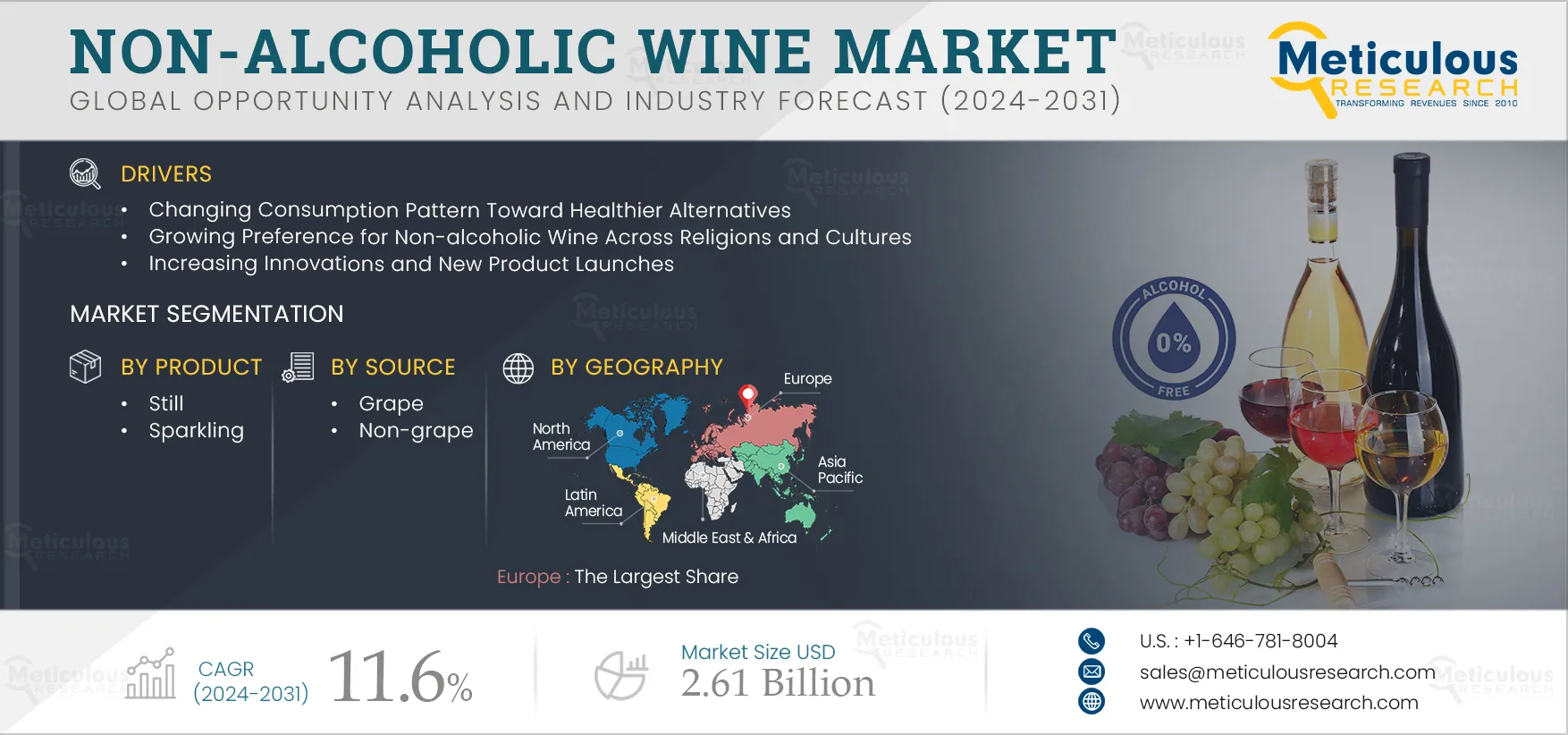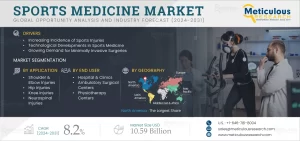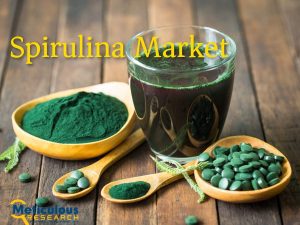
The non-alcoholic wine market is undergoing remarkable growth, driven by shifting consumer preferences toward healthier lifestyles, innovations in production techniques, and the growing availability of premium non-alcoholic beverages. With increasing awareness about the adverse health effects of alcohol and the demand for alcohol-free social drinking options, this market is rapidly expanding across regions, offering exciting opportunities for industry players.
In 2023, the non-alcoholic wine market was valued at $1.21 billion and is projected to reach $2.61 billion by 2031, growing at a compound annual growth rate (CAGR) of 11.6% from 2024 to 2031. This blog provides an in-depth analysis of the drivers, challenges, trends, and key growth strategies shaping the future of this dynamic market.
Download FREE PDF Brochure of Non-alcoholic Wine Market – https://www.meticulousresearch.com/download-sample-report/cp_id=6014
Key Growth Drivers of the Non-alcoholic Wine Market
1. Changing Consumption Patterns Towards Healthier Alternatives
A significant shift is taking place in the global beverage landscape as consumers increasingly prioritize health and wellness. Rising concerns about alcohol-related health issues—such as liver disease, mental health disorders, and addiction—have led to a surge in demand for non-alcoholic wine and other non-alcoholic drinks.
Studies published in the National Library of Medicine have highlighted the benefits of reducing alcohol consumption, such as improved physical health, better sleep, and enhanced mental clarity. As consumers become more mindful of their lifestyle choices, many are turning to non-alcoholic wine to enjoy social events without compromising their well-being.
Market Opportunities: Innovations and Premium Offerings
1. Increasing Innovation and Product Launches in Non-alcoholic Wine
Product innovation has been at the forefront of the growth in the non-alcoholic drinks market. Brands are leveraging advancements in production techniques to introduce high-quality wines with enhanced flavors and aromas. Non-alcoholic wine producers are also experimenting with diverse fruit blends—such as berries, citrus, and tropical fruits—and infusing wines with herbs like rosemary or vanilla to attract discerning consumers.
Notably, major players like the Giesen Group and Schloss Wachenheim AG have introduced a wide range of alcohol-free wines, offering sparkling, white, rosé, and red wine alternatives. Giesen Group’s launch of its Giesen 0% Sparkling Brut and Schloss Wachenheim’s LIGHT Live range highlight the industry’s focus on premium and innovative products that enhance the consumer experience.
Get Insightful Data On Regions, Market Segments, Customer Landscape, And Top Companies (Charts, Tables, Figures And More) – https://www.meticulousresearch.com/request-sample-report/cp_id=6014
Challenges: Replicating Flavors and Managing Production Costs
While the non-alcoholic wine market offers immense potential, it faces several challenges, including the loss of flavor and aroma during the dealcoholization process. Traditional methods of alcohol removal, such as heat distillation, often compromise the wine’s sensory characteristics, making it difficult to replicate the complexity of alcoholic wines.
Moreover, non-alcoholic wine is generally more expensive due to advanced production methods and the need for quality control to meet consumer expectations. Balancing product quality with competitive pricing will be essential for brands aiming to thrive in this sector.
Opportunities: Advances in Production Techniques
The development of innovative production methods is transforming the quality of non-alcoholic drinks. Technologies like vacuum distillation and reverse osmosis are now widely adopted to retain the essential flavors of the original wine. Vacuum distillation allows for the removal of alcohol at lower temperatures, preserving volatile compounds that contribute to wine’s taste and aroma. Similarly, reverse osmosis effectively separates alcohol while maintaining the beverage’s organoleptic properties, delivering a superior drinking experience.
These advancements are expected to generate significant growth opportunities for companies seeking to capture market share in the non-alcoholic wine market.
Key Market Trends: Low-calorie and No-sugar Options Gain Traction
The increasing consumer focus on health and wellness has led to rising demand for low-calorie, no-sugar beverages, including non-alcoholic wines. The prevalence of lifestyle diseases such as diabetes, obesity, and cardiovascular conditions is driving consumers toward healthier options. According to the International Diabetes Federation (IDF), around 537 million adults globally were diagnosed with diabetes in 2021—a number projected to grow to 783 million by 2045.
In response, non-alcoholic beverage companies are introducing low-calorie, sugar-free alternatives to cater to health-conscious consumers. The diversification of product portfolios with such innovative options is boosting the growth of the non-alcoholic drinks market and expanding the appeal of alcohol-free wines to new consumer segments.
Have Specific Research Needs? Request a Customized Research Report – https://www.meticulousresearch.com/request-customization/cp_id=6014
Segment Insights: Product and Distribution Trends
- Still Wines to Dominate the Non-alcoholic Wine Market
In 2024, still wines are expected to account for 82.7% of the non-alcoholic wine market due to their widespread popularity, availability in diverse flavors, and compatibility with food pairings. However, sparkling wines are poised to register a higher CAGR during the forecast period, driven by consumer interest in premium offerings and versatility in cocktails. - Bottles to Lead in Packaging, While Cans Gain Momentum
Bottles remain the preferred packaging format in the non-alcoholic wine market, owing to their premium appeal and effective preservation capabilities. However, the cans segment is expected to grow at a faster rate due to its portability, cost-efficiency, and sustainability. - Off-trade Channels to Capture the Largest Market Share
Off-trade channels, including supermarkets, liquor stores, and online retail platforms, are anticipated to dominate the distribution landscape. The expansion of e-commerce and promotional activities in retail environments will further drive consumer engagement in this segment.
Geographical Analysis: Europe Leads, North America Set for Rapid Growth
In 2024, Europe is projected to hold the largest share (48.5%) of the non-alcoholic wine market, driven by the region’s strong wine heritage, growing focus on healthier lifestyles, and availability of premium alcohol-free beverages. The European market is estimated to reach $636.4 million in 2024.
Meanwhile, North America is expected to record the highest CAGR during the forecast period, fueled by rising health awareness, the presence of emerging players, and increasing demand for sugar-free and alcohol-free beverages.
IMMEDIATE DELIVERY AVAILABLE | BUY THIS RESEARCH REPORT (Insights, Charts, Tables, Figures and More) – https://www.meticulousresearch.com/Checkout/92601811
Competitive Landscape: Key Players and Market Developments
Leading companies in the non-alcoholic wine market are focusing on product innovation, strategic partnerships, and market expansion. Some key players include:
- Schloss Wachenheim AG (Germany)
- Giesen Group Ltd (New Zealand)
- Ariel Vineyards (U.S.)
- Domaines Pierre Chavin (France)
- Carl Jung Winery (Germany)
Recent market developments include the launch of new alcohol-free wines by Free AF (U.S.) and Oceano Wine (U.S.) and the expansion of Schloss Wachenheim AG’s premium alcohol-free product portfolio.
Non-alcoholic Wine Market Research Summary
| Particulars | Details |
| Number of Pages | 210 |
| Format | |
| Forecast Period | 2024–2031 |
| Base Year | 2024 |
| CAGR (Value) | 11.6% |
| Market Size (Value) | USD 2.61 Billion by 2031 |
| Segments Covered | By Product
By Source
By Technology
By Packaging
By Distribution Channel
|
| Countries Covered | North America (U.S., Canada), Europe (Germany, France, U.K., Italy, Spain, and Rest of Europe), Asia-Pacific (China, India, Japan, Australia, and Rest of Asia-Pacific), Latin America (Brazil, Mexico, Argentina and Rest of Latin America), and the Middle East & Africa (United Arab Emirates, Saudi Arabia, South Africa, and Rest of Middle East and Africa) |
| Key Companies | Schloss Wachenheim AG (Germany), Sutter Home Fre (U.S.), Giesen Group Ltd (New Zealand), Domaines Pierre Chavin (France), Ariel Vineyards (U.S.), Torres Natureo (Spain), Carl Jung Winery (Germany), Weingut Leitz KG (Germany), Thomson & Scott Ltd (U.K.), Neobulles SA (Belgium), Australian Vintage Limited (Australia), Hill incorporated (Canada), Le Petit Béret SAS (France), and Tost Beverages, Inc (U.S.) |
Related Reports :
About Us:
We are a trusted research partner for leading businesses worldwide, empowering Fortune 500 organizations and emerging enterprises with actionable market intelligence tailored to drive revenue transformation and strategic growth. Our insights reveal forward-looking revenue opportunities, providing our clients with a competitive edge through a diverse suite of research solutions—syndicated reports, custom research, and direct analyst engagement.
Each year, we conduct over 300 syndicated studies and manage 60+ consulting engagements across eight key industry sectors and 20+ geographic markets. With a focus on solving the complex challenges facing global business leaders, our research enables informed decision-making that propels sustainable growth and operational excellence. We are dedicated to delivering high-impact solutions that transform business performance and fuel innovation in the competitive global marketplace.
Contact Us:
Meticulous Market Research Pvt. Ltd.
1267 Willis St, Ste 200 Redding,
California, 96001, U.S.
Email– sales@meticulousresearch.com
USA: +1-646-781-8004
Europe: +44-203-868-8738
APAC: +91 744-7780008
Visit Our Website: https://www.meticulousresearch.com/
For Latest Update Follow Us:
LinkedIn– https://www.linkedin.com/company/meticulous-research
Meticulous Blog | Top Market Research Reports Blog – https://meticulousblog.org/







